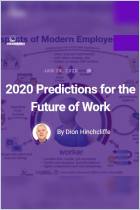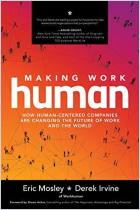Join getAbstract to access the summary!

Join getAbstract to access the summary!
Jonathan Emmett, Asmus Komm, Stefan Moritz and Friederike Schultz
This Time It's Personal
Shaping the new possible through employee experience
McKinsey, 2021
What's inside?
Companies design products for the best user experience. What happens when companies apply the same standard to the employee experience?
Recommendation
In this McKinsey report, Jonathan Emmett, Asmus Komm, Stefan Moritz and Friederike Schultz define the concept of “employee experience” (EX) design. By applying design thinking to the employee “journey,” the authors lay out a detailed program of the steps involved in elevating and customizing your workers’ path within your organization and corporate culture. The end result is greater employee energy, engagement, purpose and loyalty in a changing workplace.
Summary
About the Authors
Jonathan Emmett is an associate partner in McKinsey’s New Jersey office, Asmus Komm is a partner in the Hamburg office, Stefan Moritz is a senior expert in the Stockholm office and Friederike Schultz is an associate partner in the Berlin office.



















Comment on this summary